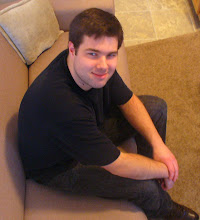Title: The Mechanic
Year of Release: 2011
Date Viewed: January 30th, 2011
MPAA Rating: R
Seeing Jason Statham's name on a movie poster is all it takes for my friends to visit the multiplex. I tagged along because I always love hanging out with them and because Statham's movies are usually a one-note instrument and thereby easy to review.
Statham's character calls himself a mechanic but is really an assassin named Arthur Bishop. You've heard the comedic threat of murdering someone and making it look like an accident. That's actually what Bishop does for a living. In the opening scene, he manages to drown a mobster in his swimming pool while maintaining the illusion of casual exercise long enough to escape the retaliation. No rhyme. No reason. No set-up. He enters, does the job and goes home. This pattern repeats roughly a half dozen times throughout the movie in varying degrees of challenge. Bishop is an enigma. We barely get to know who he is or who he works for.
A pivotal occurrence comes when Bishop is assigned to terminate former mentor Harry McKenna (Donald Sutherland), which leads to what is probably his first ever honorable kill. A new assignment immediately arises, one that Bishop creates for himself. Train Harry's son Steve (Ben Foster) as a sidekick. Steve has a case of Bruce Wayne syndrome. His father's death left a void in his life. His burning need for vengeance inspires him to quell dangerous murderers by killing them first, completely unaware that his teacher was the one responsible for the original life-altering event.
The Mechanic is a reworking of a 1972 film by the same name which had Charles Bronson in the title role. Although I haven't seen that one yet, it's safe to say that Statham made the role his own. All the trademarks are present. He speaks in a calm voice, never at a loss for words. The bad guys always struggle to keep up with his cleverness. He's tough as nails with a side dish of sadism. And there's a standout moment intended to surprise the audience and define his character as the ultimate bad mother-you-know-what. It's very much a typical Jason Statham vehicle for every glossary.
Steve McKenna never really has a chance to come into his own. Quick into his apprenticeship, he becomes an Arthur Bishop clone minus the charm. The assassins' targets do not fare much better. James Bond movies usually offer enough backstory for the bad guys that serve to help strengthen the impact of their eventual demise. This movie doesn't even give a quarter of that effort to its own villains. One such promising character is a televangelist on the verge of becoming a pop culture icon. He has an enormous cult following that believe him to be the sole direct communicator to God. Bishop's employer suspects an abuse of power. Imagine the possibilities here. If he gets involved in...say politics...who knows what might become....never mind, he's dead now. Just like all the other wasted ideas.
It's obvious that this movie was only meant to be a mindless action fest without any character driven drama getting in the way. Fine by me, but why not make it a television series instead and get two for the price of one? The set-up is already tailor-made. Each new episode would feature a new super-villain to eliminate. Sure, the violence would have to be toned down and you wouldn't need Statham, but at least he'll be free to pursue a more challenging project and please his fanbase elsewhere.
My friends and I paid for what we expected to see and we got it. My reception was milder than the rest of the group because I wanted more than what was expected, which wasn't a lot to begin with.
Rating: 4







